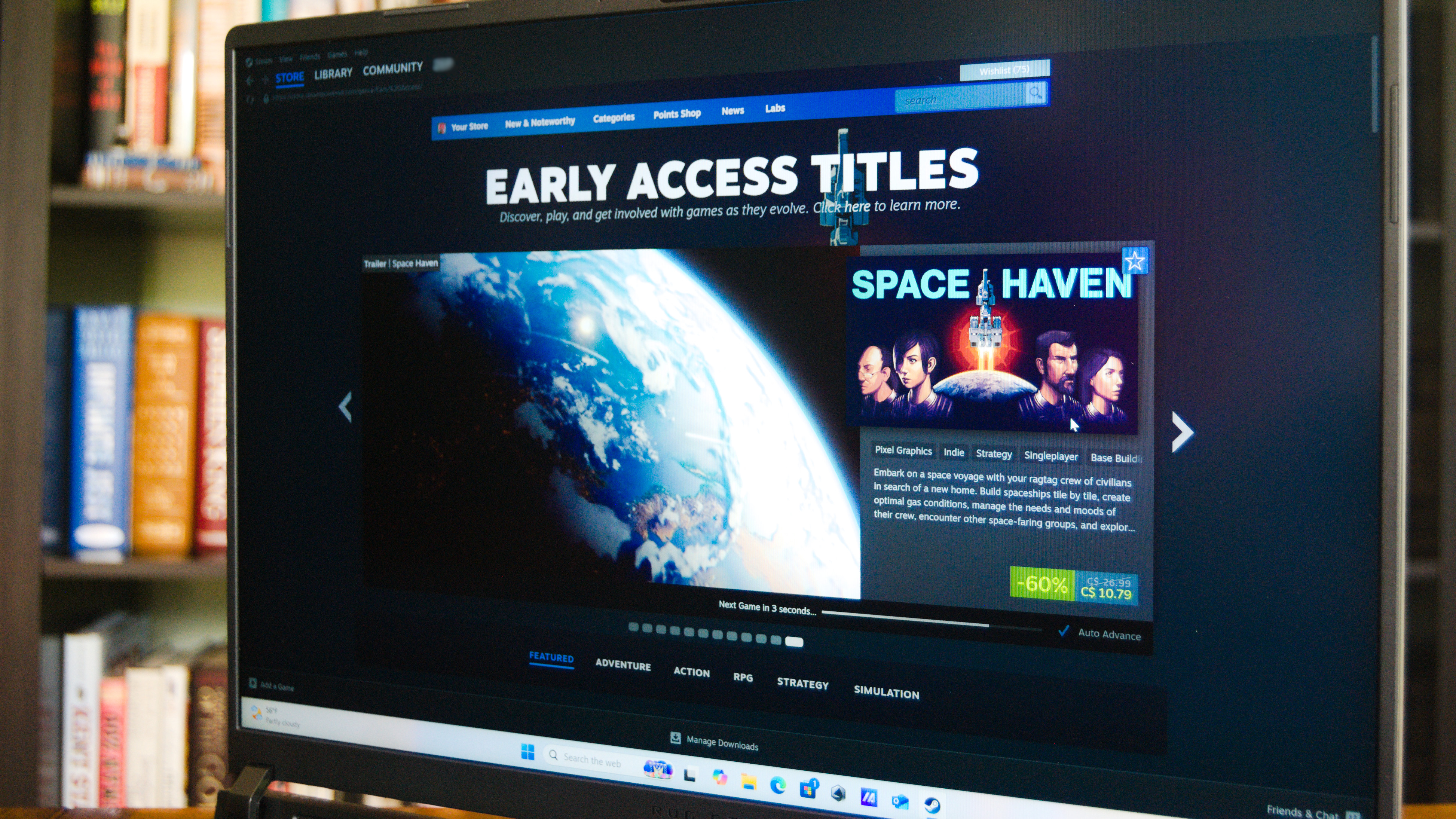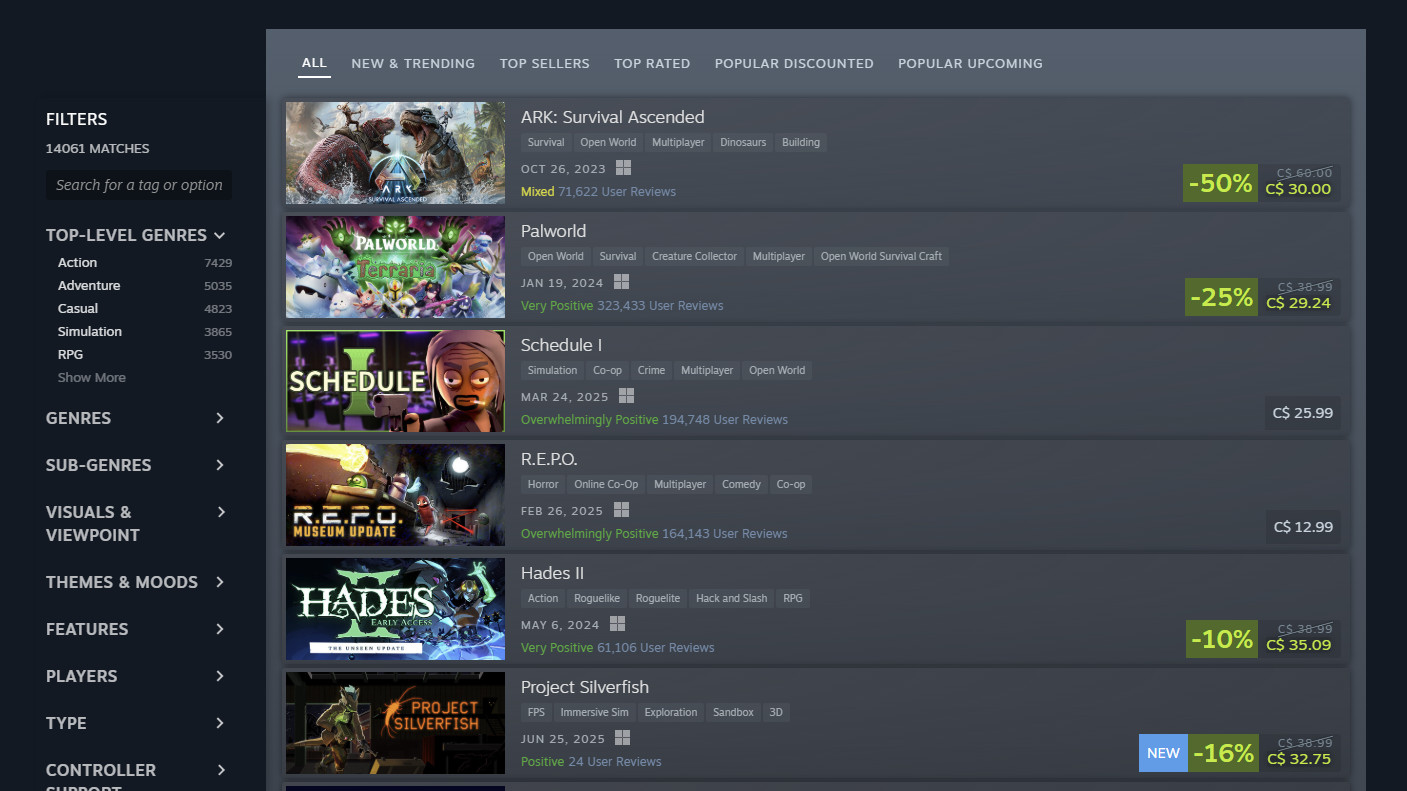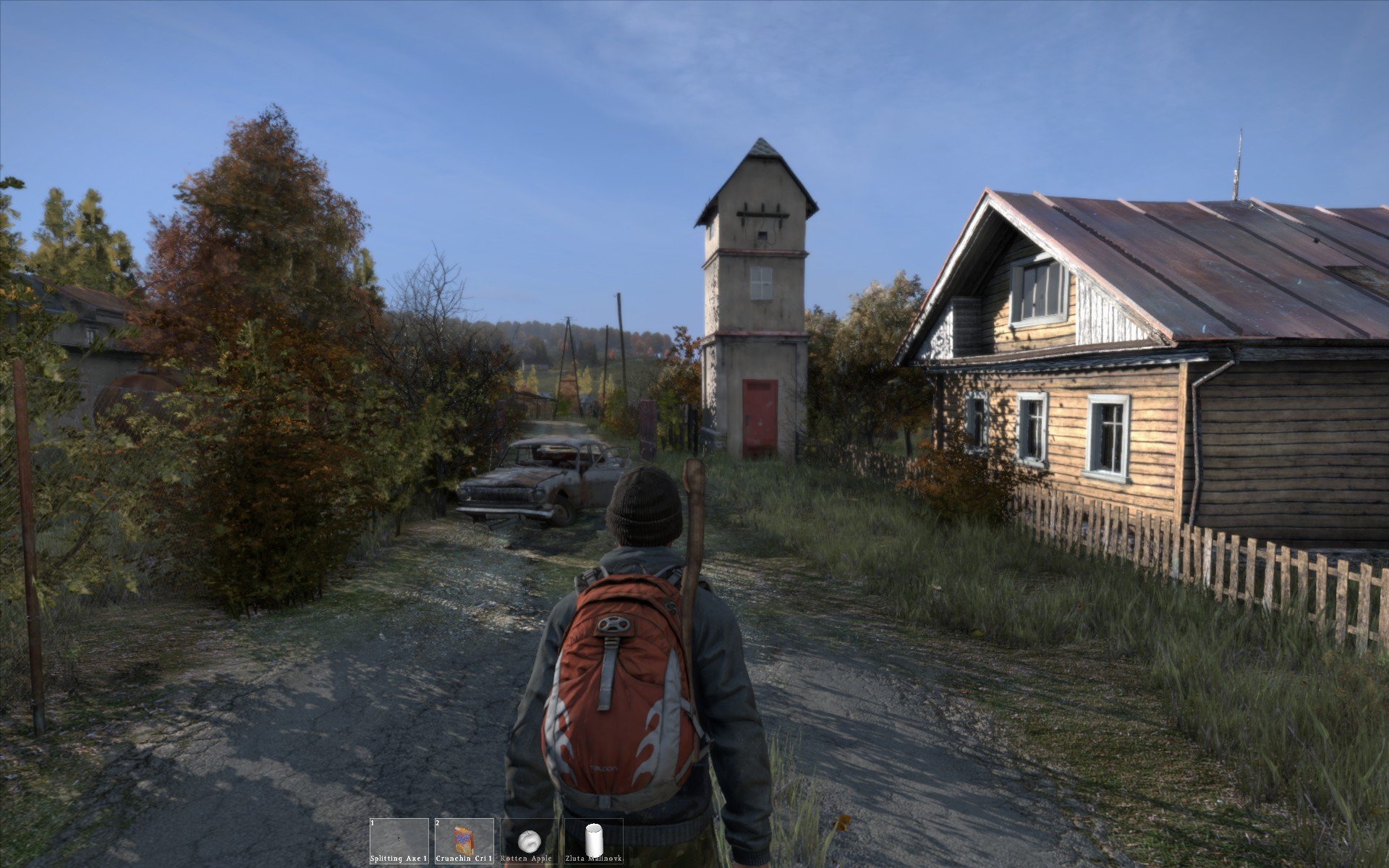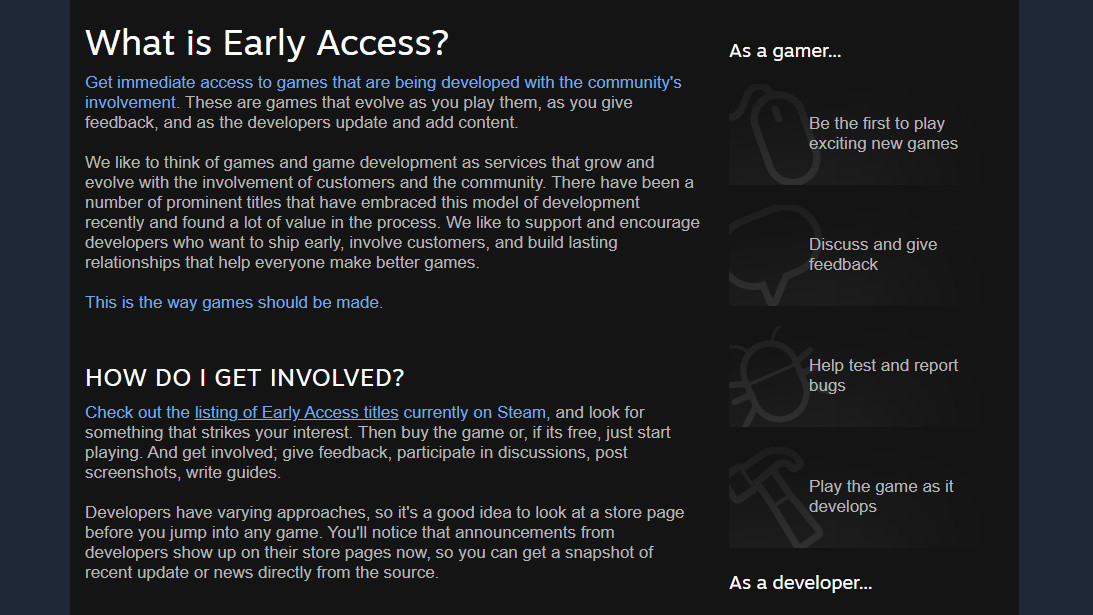
All the latest news, reviews, and guides for Windows and Xbox diehards.
You are now subscribed
Your newsletter sign-up was successful
Valve's "Early Access" Steam initiative is, in theory, a great idea that helps get games made that we'd otherwise never get to enjoy. It helps new developers fund their ambitions, uncovering talent that might otherwise never be recognized.
In practice, however, I no longer believe Steam's Early Access program is serving PC gamers and developers as it was initially intended.
Early Access was introduced on Steam more than 12 years ago in 2013, and it has since grown to enormous proportions. A quick look at Steam's main Early Access landing page today lists a whopping 14,056 titles that are or were once part of the EA program.
While many have seen massive success, there are plenty that will never see an official release and have been sitting abandoned for years. While Steam makes it clear that you're taking a risk when you buy an early access title, there was a brief time when it wasn't this bad.
What was Steam Early Access like when it launched?
My Steam account is old enough to get into a bar, and I can recall when the Early Access program was fresh and working as intended. It was introduced all those years ago with just 12 titles on the slate, including games that are still around today like Kerbal Space Program, ARMA 3, Prison Architect, and Kenshi.
These titles remain popular today, with either Overwhelmingly Positive or Very Positive reviews. It's clear that Steam's EA program was what these games needed to become what they are today.
For me, it was the standalone version of the ARMA 2 DayZ mod that first marred the impression of early access games. Development kicked off in 2012, and it joined Steam Early Access in late 2013, just months after EA became a thing. DayZ spent about five years there, during which time many players gave up on it ever reaching a full release.
All the latest news, reviews, and guides for Windows and Xbox diehards.
Today, Steam's Early Access program is still pumping out amazing games that probably wouldn't be possible otherwise. However, the DayZ situation, as I remember it, no longer comes as a surprise when it happens with modern early access games.
At some point, Steam Early Access devolved into a way for certain developers to take advantage of Steam's EA rules to make a quick buck on a project that was never intended to be finished.
Speaking of Steam's Early Access developer rules, here they are as pulled from the official site:
- You must include Steam Early Access branding and information about the current state of your game on any third-party sites where you are distributing Steam keys for your Early Access game.
- Do not make specific promises about future events.
- Steam Early Access titles need to be available to customers through Steam.
- Don't overcharge Steam customers.
- Make sure you set expectations properly everywhere you talk about your game.
- Don't launch in Early Access without a playable game.
- Don't launch in Early Access if you are finished with development.
These rules assume that a game's developer is honest and confident in a product (which many are), and that a developer will consider the potential for fortune and fame to continue working on a title.
Realistically, however, that's not always what happens.
What's the point of an early access release program?
The whole idea of an early access program is threefold. First, it allows developers to receive crucial feedback from gamers (aka playtesters) throughout several development stages.
Second, it gives gamers a chance to support a studio or developer, all while getting exclusive early access to a game.
Third, an early access launch adds funds to the development team, which helps speed up the process and improve quality.
It might take more effort from the developer to interface with early buyers and to make changes suggested by the overall community, but as I mentioned, releasing a game into early access is often the only way for a title to get made.
These days, it's common for a developer to launch a game that's barely playable, using the Early Access badge as an excuse for its state rather than to signal that it requires extra help with development.
Developers are under no obligation to Steam to make changes based on player feedback, nor are they obligated to actually finish development.
Who's really to blame for the current state of Steam Early Access?
I'm not placing all of the blame on Steam and its parent company, Valve. Far from it. I'm a firm believer that Steam is the best way to buy and enjoy PC games, but that doesn't mean I can't criticize it.
Dishonest developers take advantage of loopholes in the Early Access rules to shovel their garbage, and many PC gamers are eager to throw money at it. Who doesn't want to be part of the latest fad, often promoted by streamers?
I admit I'm guilty on the latter front. I have plenty of friends who are a lot more wary than I am, and I applaud them as I look at another $20 or $30 that's gone to waste because a game has been abandoned.
Steam's Early Access program is certainly still producing a lot of great content, but I fear that it will soon — if not already — be outweighed by abandonware that uses false promises to make quick money.

Cale Hunt brings to Windows Central more than nine years of experience writing about laptops, PCs, accessories, games, and beyond. If it runs Windows or in some way complements the hardware, there’s a good chance he knows about it, has written about it, or is already busy testing it.
You must confirm your public display name before commenting
Please logout and then login again, you will then be prompted to enter your display name.




